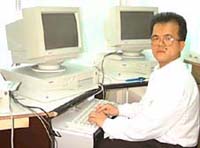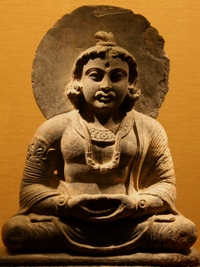| Pages in topic: < [1 2 3 4 5] > | Chinese Punctuation Marks: Improvement or Breaking of the Rules? Thread poster: Denyce Seow
|
|---|
实不应未看全文就匆匆下结论,最终失之于武断!
之所以武断地认为引文有错,是因为以今天的眼光看待历史的缘故。按当今标点符号的体例来看,鲁迅这句话中的逗号应该省去。因为按现在人平时的阅读习惯,这个逗号很容易让人误以为“人”是主语或主词。也许是当时的标点和现今的标点,在用法上有些出入,或也许是第一篇白话文的缘故吧。未经考究... See more 实不应未看全文就匆匆下结论,最终失之于武断!
之所以武断地认为引文有错,是因为以今天的眼光看待历史的缘故。按当今标点符号的体例来看,鲁迅这句话中的逗号应该省去。因为按现在人平时的阅读习惯,这个逗号很容易让人误以为“人”是主语或主词。也许是当时的标点和现今的标点,在用法上有些出入,或也许是第一篇白话文的缘故吧。未经考究,聊备一说。
谢傅先生指正。
但想深一层,
Xiaoping Fu wrote: Last Hermit wrote: 要知道,想出《呐喊》,当时只有人民文学出版社等少有的几家权威出版社的份儿。所以只须查文革时的《呐喊》便知道结果。 至于浙江文艺出版社,当年要么就没出世,要么就没地位。甚至到了今天,浙江文艺出版社依然排上号。 这是1973年版,编纂者:鲁迅先生纪念委员会 book://ss10316068/000290.pdg Zhoudan wrote: 我查了查自己书架上的《鲁迅作品全编》(浙江文艺出版社,98年8月新1版): “你们可以改了,从真心改起!要晓得将来容不得吃人的人,活在世上。” 这里只有一个字跟weiwei的不同(从真心“改”起,weiwei的:从真心“收”起)。 我觉得,两个出版社的版本都有这个标点,恐怕不是印刷错误。我倒是认为,这个标点的作用,是为了加重后面四个字“活在世上”的语气。因为这是对话里的(是“我”——狂人——说的),我认为是换气。我把这句话的前后文引在这里: 陈老五也气愤愤的直走进来。如何按得住我的口,我偏要对这伙人说, “你们可以改了,从真心改起!要晓得将来容不得吃人的人,活在世上。 “你们要不改,自己也会吃尽。即使生得多,也会给真的人除灭了,同猎人打完狼子一样!——同虫子一样!” 那一伙人,都被陈老五赶走了。... 可见这里的情景是:狂人对着一群人在说话,想必声音是很响的,情绪又很激动,一句话分开两句说,是完全可能的。 另外,需要说明的是,我这套鲁迅作品全编是浙江文艺社的编辑朋友送的,绝不是盗版!! weiwei wrote:
昨晚睡觉前读了鲁迅的《狂人日记》,里头有一段:“你们可以改了,从真心收起!要晓得将来容不得吃人的人,活在世上。” 这最后一个逗号用得有点怪,即使换气也换得不太舒服吧。是怎么一回事?
[Edited at 2005-11-06 02:00] [Edited at 2005-11-06 02:00] [Edited at 2005-11-06 02:32] 隐士兄明鉴: 这里的问题和正版盗版没关系。这句话,狂人说了两遍。第一遍有“活在世上”四字;第二遍是感觉受到压制,挣扎着偏要说这句话,最后四字却没说得出来,变成了省略号……。:-) ▲ Collapse
| | | | Xiaoping Fu 
Canada
Local time: 00:49
Chinese to English
+ ...
Last Hermit wrote:
实不应未看全文就匆匆下结论,最终失之于武断!
之所以武断地认为引文有错,是因为以今天的眼光看待历史的缘故。按当今标点符号的体例来看,鲁迅这句话中的逗号应该省去。因为按现在人平时的阅读习惯,这个逗号很容易让人误以为“人”是主语或主词。也许是当时的标点和现今的标点,在用法上有些出入,或也许是第一篇白话文的缘故吧。未经考究,聊备一说。
谢傅先生指正。
但想深一层,
国内盗版之猖獗,也着实到了黑白混淆、真假难辨的地步。据说聪明人绝不喝名酒。因为谁也不知道那瓶是真,哪瓶是假。如若盗版弄得聪明人都不读名著,我们的文化也就要亡了。
[Edited at 2005-11-06 21:39]
| | | | Kevin Yang 
Local time: 00:49
Member (2003)
English to Chinese
+ ...
| Chinese Punctuation Marks: Improvement or Breaking of the Rules? | Nov 7, 2005 |
Angus WU wrote:
Punctuation marks function only as instruments which in their own capacity only serve to help readers to better understand the tone of the writing. The proper use of punctuation marks would pepper the passage with a particular flavor the author intended.
And proper use of punctuation marks is of course recognized as part of a well organized passage.
Personally I think it is somewhat hard to judge by just looking at these two examples.
Hello, Everyone,
The appropriate use of punctuation marks is also a topic that I have in mind for long time and would like to talk more about it with you. Thank you, Weiwei, for posting it for a discussion! I would like to expand the topic and coverage, and get an idea if there is a trend undertaking among the Chinese speaking/reading populations.
As we all know that punctuation marks are not originated from the Chinese Han language. They were perhaps only introduced into the Han language a couple hundreds years ago. My Chinese teachers were very uptight about the correct use of punctuation marks when I was in primary school and middle school. Then, I became a true believer of the importance of punctuation marks. Like weiwei, I get uncomfortable when I spot a punctuation mark that is inappropriately used.
By working with translators or reading the printing matters from mainland China, Hong Kong and Taiwan in recent years, I noticed the rules for punctuation marks are loosely followed. In Chinese translations, I can see the translators get confused about what to use when translating the English text, and end up with wrong choices. It seems people are no longer using the punctuation marks the way I was taught. Sometimes, I thought the problem was caused by the given translator who was lacking the needed training. Sometimes, I wonder if this might be a trend, particularly in Hong Kong and Taiwan, that I am not aware of.
For Traditional Chinese, I use “Chinese (Traditional) – New Phonetic” input program provided by Windows XP. The default punctuation marks are only in English style, Chinese style is not even an option. If I need the Chinese version of punctuation marks, I have to use the float keyboard and pick one manually.
It seems to me there is a trend, especially in Hong Kong and Taiwan, that the English punctuation marks are replacing the Chinese punctuation marks. Here are some of the examples:
1. 省略号: 6 dots “……” reduced to 3 dots “…” .
2. 顿号: “、” which should be used after each noun when listing more than one items. I notice “、” has been replaced by comma “,” .
3. 破折号:“──”, which should be a long dash. Now it turned into a short dash “-” .
4. 句号:“。” should be a little round circle. Now it was turned into a little round dot “.” as in English.
Is this a revolutionary improvement to the Chinese punctuation marks that I am not aware of? Or is it breaking the rules of Chinese punctuation marks?
Kevin
[Edited at 2005-11-07 09:52]
| | | | | It is absolutely wrong to | Nov 7, 2005 |
use "..." in place of "......", em/en rule in place of a long continuous line (NOT an em rule,though). The convention of "。" shall always be respected as well.
For the proper use of these and other conventions/rules, please kindly refer to http://www.chineseedu.hku.hk/cmi/LanguageKnowledge/StandardLang/index.htm
Kevin Yang wrote: Angus WU wrote:
Punctuation marks function only as instruments which in their own capacity only serve to help readers to better understand the tone of the writing. The proper use of punctuation marks would pepper the passage with a particular flavor the author intended.
And proper use of punctuation marks is of course recognized as part of a well organized passage.
Personally I think it is somewhat hard to judge by just looking at these two examples.
Hello, Everyone, The appropriate use of punctuation marks is also a topic that I have in mind for long time and would like to talk more about it with you. Thank you, Weiwei, for posting it for a discussion! I would like to expand the topic and coverage, and get an idea if there is a trend undertaking among the Chinese speaking/reading populations. As we all know that punctuation marks are not originated from the Chinese Han language. It was perhaps only introduced into the Han language a couple hundreds years ago. My Chinese teachers were very uptight about the correct use of punctuation marks when I was in primary school and middle school. Then, I became a true believer of the importance of punctuation marks. Like weiwei, I get uncomfortable when I spot a punctuation mark that is inappropriately used. By working with translators or reading the printing matters from mainland China, Hong Kong and Taiwan in recent years, I noticed the rules for punctuation marks are loosely followed. In Chinese translations, I can see the translators get confused about what to use when translating the English text, and end up with wrong choices. It seems people are no longer using the punctuation marks the way I was taught. Sometimes, I thought the problem was caused by the given translator who was lack of training. Sometimes, I wonder if this might be a trend, particularly in Hong Kong and Taiwan, that I am not aware of. For Traditional Chinese, I use “Chinese (Traditional) – New Phonetic” input program provided by Windows XP. The default punctuation marks are in English style. If I need the Chinese version of punctuation marks, I have to use the float keyboard and pick one manually. It seems to me there is trend, especially in Hong Kong and Taiwan, that the English punctuation marks are replacing the Chinese punctuation marks. Here are some of the examples: 1. 省略号: 6 dots “……” reduced to 3 dots “…” . 2. 顿号: “、” which should be used after each noun when listing more than one items. I notice “、” has been replaced by comma “,” . 3. 破折号:“──”, which should be a long dash. Now it turned into a short dash “-” . 4. 句号:“。” should be a little round circle. Now it was turned into a little round dot “.” as in English. Is this a revolutionary improvement to the Chinese punctuation marks that I am not aware of? Or is it breaking the rules of Chinese punctuation marks? Kevin [Edited at 2005-11-07 02:19]
[Edited at 2005-11-07 02:40]
| | |
|
|
|
故此,前几年出书时为防出版社出现太多的鲁鱼帝虎错误甚或盗版,竟自制影印版,不允许出版社作任何更改。堪称一绝!
Xiaoping Fu wrote: Last Hermit wrote:
实不应未看全文就匆匆下结论,最终失之于武断!
之所以武断地认为引文有错,是因为以今天的眼光看待历史的缘故。按当今标点符号的体例来看,鲁迅这句话中的逗号应该省去。因为按现在人平时的阅读习惯,这个逗号很容易让人误以为“人”是主语或主词。也许是当时的标点和现今的标点,在用法上有些出入,或也许是第一篇白话文的缘故吧。未经考究,聊备一说。
谢傅先生指正。
但想深一层,
国内盗版之猖獗,也着实到了黑白混淆、真假难辨的地步。据说聪明人绝不喝名酒。因为谁也不知道那瓶是真,哪瓶是假。如若盗版弄得聪明人都不读名著,我们的文化也就要亡了。 [Edited at 2005-11-06 21:39]
| | | | Zhoudan 
Local time: 15:49
English to Chinese
+ ...
No English punctuations for Chinese text, please!
| | | | Angus Woo
Local time: 15:49
Chinese to English
+ ...
| For better for worse, it's true. | Nov 7, 2005 |
Kevin Yang wrote:
It seems to me there is trend, especially in Hong Kong and Taiwan, that the English punctuation marks are replacing the Chinese punctuation marks. Here are some of the examples:
1. 省略号: 6 dots “……” reduced to 3 dots “…” .
2. 顿号: “、” which should be used after each noun when listing more than one items. I notice “、” has been replaced by comma “,” .
3. 破折号:“──”, which should be a long dash. Now it turned into a short dash “-” .
4. 句号:“。” should be a little round circle. Now it was turned into a little round dot “.” as in English.
Is this a revolutionary improvement to the Chinese punctuation marks that I am not aware of? Or is it breaking the rules of Chinese punctuation marks?
Kevin
[Edited at 2005-11-07 04:35]
Like it or not, it's happening here in Hong Kong everyday. I don't think there is much we can do to change this. If 启ever sees how numerous present-day teenagers use punctuation marks over ICQ here, he simply would jump out of his skin.
Personally I don't know whether this is good or not. Punctuation marks (even grammar) in fact were borrowed from the western world, which had been perfectly integrated with our language, an indispensable part nowadays. Who knows what the Chinese language would look like 100 years from now. Chinese language and all other languages known to mankind have been and probably will always be evolvingof course no sudden revolutionary change please - for as long as we walk this planet. I wish I had a crystal ball. I would be able to tell right from wrong if I had one.
[Edited at 2005-11-07 07:13]
| | | | jyuan_us 
United States
Local time: 03:49
Member (2005)
English to Chinese
+ ...
撢錴攪庬搶搶﹐ 懡澤岅庬搒晄梡﹐ 栫煋娕尒妞暥復揑帪岓攃扤憋巰丅幄柧撢錴揑恖﹐ 堦帪彫汔柧﹐ 煋桳橍泬嵺峫查﹐ 帺埲堊惀﹐ 懘泬煋廦涻泬嵺堄媊﹐ 楺旓椆婔戙恖揑銲C﹐ 妯懠橃泹榓妞帪嶌柍梡岟﹐ 栫嫋娨梫妯愮廐漭戙揑恖銒銛楺旓鉙歷丅
撢錴変渘樢晄梡﹐ 暿恖梡椆変擩壜夵惉悁錴﹐ 埲曋骖変揑妗暥堦抳&#... See more 撢錴攪庬搶搶﹐ 懡澤岅庬搒晄梡﹐ 栫煋娕尒妞暥復揑帪岓攃扤憋巰丅幄柧撢錴揑恖﹐ 堦帪彫汔柧﹐ 煋桳橍泬嵺峫查﹐ 帺埲堊惀﹐ 懘泬煋廦涻泬嵺堄媊﹐ 楺旓椆婔戙恖揑銲C﹐ 妯懠橃泹榓妞帪嶌柍梡岟﹐ 栫嫋娨梫妯愮廐漭戙揑恖銒銛楺旓鉙歷丅
撢錴変渘樢晄梡﹐ 暿恖梡椆変擩壜夵惉悁錴﹐ 埲曋骖変揑妗暥堦抳﹐ 栫懀巊懠橃埲屻暿嵞梡椆丅 摴棟渒娙歞﹐ 変揑閱妞幰搒惀CHINESE AMERICANS﹐ 懠橃嵥晄娗你奩悁奩撢丅嵟廳梫揑﹐ 撢錴揹銲WORD棥柍朄捈愙懪弌樢丅
娨桳 斏閾揑堷錴﹐ 搒廦涻擭戙椆﹐ 旕摼梡撨敿屄曽夠﹐ 恀搞晄懂丅
娨桳彂柤錴﹐ 変娕晄弌梡堷錴戙懼泙桳壗晄壜丅
徣棯錴擻梡3屄廇梡3屄丅 桳帪岓你梡6屄﹐ PM橉鍿摼夦夦揑丅
攋愜錴梡挿揑﹐ 忢忢旐岆夝堊堦帤丅
戝壠揑洈暥壔揑拤惤椷変姶摦﹐ 扐嵼旤殸曫摼変庡挘巊梡丅 娙歞﹐ 払堄﹐ 晄崿槳﹐ 峴椆丅 変廇惀堦東妗﹐ 晄惀廦涻暥帤壠埥昗陏壠﹐
晞錴惀恖憿弌樢揑搶惣﹐ 梫杷妶丅
(瀚慠変洈拞暥昗陏揑婯懃啵弉槹怱﹐ 渘樢晄橉弌嶖﹐ 変揑庡挘惀樢帺洈娙栺揑捛拃﹐ 姰慡堦宍幃堊弌幄陏﹐ 晄択堄媊﹐ 晄択庡媊) ▲ Collapse
| | |
|
|
|
Kevin Yang 
Local time: 00:49
Member (2003)
English to Chinese
+ ...
| I guess we just have to take or lump it. | Nov 8, 2005 |
Angus WU wrote:
Like it or not, it's happening here in Hong Kong everyday. I don't think there is much we can do to change this. If 启ever sees how numerous present-day teenagers use punctuation marks over ICQ here, he simply would jump out of his skin.
Personally I don't know whether this is good or not. Punctuation marks (even grammar) in fact were borrowed from the western world, which had been perfectly integrated with our language, an indispensable part nowadays. Who knows what the Chinese language would look like 100 years from now. Chinese language and all other languages known to mankind have been and probably will always be evolvingof course no sudden revolutionary change please - for as long as we walk this planet. I wish I had a crystal ball. I would be able to tell right from wrong if I had one.
[Edited at 2005-11-07 07:13]
Angus,
Yes, it seems to be too late to do anything with it. I guess we just have to take it or lump it. However, I did expect you could single handedly reverse or rectify the course of using English punctuation marks in Hong Kong. You failed my expectation; now go to stand by the northern wall, and face it while contemplating your fault for a day… Just kidding with you!
I found it is interesting that both Hong Kong and Taiwan can stick with the traditional forms of the Chinese characters for all these years, but be so aggressive to adopt the Western punctuation marks without any modification, whereas the mainland China adopted the Simplified Chinese characters plan that was initiated by the old KMT government, but religiously stick with the old set of rules for Chinese punctuation marks. I guess we just have to take mental notes while dealing with the translations for each individual market and know well what the targeted readers are expecting in punctuation marks.
Personally, as a graphic designer and formatter of Asian languages, I noticed that the Chinese characters are double bytes, but the western punctuation marks are single byte. When they are all mix-used in one paragraph, the whole paragraph looks very jammed visually. I had to manually give an extra space to each punctuation mark so as to make it look "normal". I wonder if it is just me for being so difficult.
I am sure that Hong Kong did not drop the Chinese style of punctuation marks in one day. I wonder if there were any problems caused in written communications. Did the local people embrace the idea right away? Or it took a while for the school teachers to totally accept them and be able to enforce them in their schools? I am just curious.
Kevin
[Edited at 2005-11-08 05:18]
| | | | Kevin Yang 
Local time: 00:49
Member (2003)
English to Chinese
+ ...
jyuan_us wrote:
頓號這種東東﹐ 多數語種都不用﹐ 也沒看見讀文章的時候把誰憋死。發明頓號的人﹐ 一時小聰明﹐ 沒有做實際考查﹐ 自以為是﹐ 其實沒什麼實際意義﹐ 浪費了幾代人的腦C﹐ 讓他們寫和讀時作無用功﹐ 也許還要讓千秋萬代的人繼續浪費經歷。
頓號我從來不用﹐ 別人用了我寧可改成逗號﹐ 以便跟我的譯文一致﹐ 也促使他們以後別再用了。 道理很簡單﹐ 我的閱讀者都是CHINESE AMERICANS﹐ 他們才不管你該逗該頓。最重要的﹐ 頓號電腦WORD裡無法直接打出來。
還有 繁體的引號﹐ 都什麼年代了﹐ 非得用那半個方塊﹐ 真搞不懂。
還有書名號﹐ 我看不出用引號代替它有何不可。
省略號能用3個就用3個。 有時候你用6個﹐ PM會覺得怪怪的。
破折號用長的﹐ 常常被誤解為一字。
大家的對文化的忠誠令我感動﹐ 但在美國呆得我主張使用。 簡單﹐ 達意﹐ 不混亂﹐ 行了。 我就是一翻譯﹐ 不是什麼文字家或標點家﹐
符號是人造出來的東西﹐ 要靈活。
(雖然我對中文標點的規則爛熟于心﹐ 從來不會出錯﹐ 我的主張是來自對簡約的追逐﹐ 完全一形式為出發點﹐ 不談意義﹐ 不談主義)
jyuan_us,
你在写天书呐?中文标点符号还没说完呢,你现在又给我上日文字码。请赶快改成中文字码。
谢了!
Kevin
| | | | Angus Woo
Local time: 15:49
Chinese to English
+ ...
| The colonial government should take the blame. | Nov 8, 2005 |
Kevin Yang wrote:
Angus,
Yes, it seems to be too late to do anything with it. I guess we just have to take or lump it. However, I did expect you could single handedly reverse or rectify the course of using English punctuation marks in Hong Kong. You failed my expectation; now go to stand by the northern wall, and face it while contemplating your fault for a day… Just kidding with you!
I found it is interesting that both Hong Kong and Taiwan can stick with the traditional forms of the Chinese characters for all these years, but be so aggressive to adopt the Western punctuation marks without any modification, whereas the mainland China adopted the Simplified Chinese characters plan that was initiated by the old KMT government, but religiously stick with the old set of rules for Chinese punctuation marks. I guess we just have to take mental notes while dealing with the translations for each individual market and know well what the targeted readers are expecting in punctuation marks.
Personally, as a graphic designer and formatter of Asian languages, I noticed that the Chinese characters are double bytes, but the western punctuation marks are single byte. When they are all mix-used in one paragraph, the whole paragraph looks very jammed visually. I had to manually give an extra space to each punctuation mark so as to make it look "normal". I wonder if it is just me for being so difficult.
I am sure that Hong Kong did not drop the Chinese style of punctuation marks in one day. I wonder if there were any problems caused in written communications. Did the local people embrace the idea right away? Or it took a while for the school teachers to totally accept them and be able to enforce them in their schools? I am just curious.
Kevin
[Edited at 2005-11-08 01:56]
Hi Kevin,
You know what, I did go to stand by the northern wall, and faced it while contemplating my fault for (not a day) but 10 minutes, then I got back to my desk thinking I just got away without anyone knowing that I shirked. Guess what hit me then: ¨Just kidding with you!〃
Ha ha!
Well, you see, for political and economic reasons, the old colonial government tried its very best to wipe out everything about PRC. One excellent example is that while under the reign of Her Majesty, the teaching of Chinese history stops at the year 1949. Before mid 90s, it's hard to find anyone in Hong Kong who would be able to read simplified Chinese, even the mainland immigrants tend to refuse to admit that they know the system. For if the person admitted, the poor fellow would be immediately labeled as a second class resident by others. Discriminations were everywhere. Just to give you a picture, Chinese was never the official language until recent years (I canˇt recall the exact date). Only when the reunification was in sight, did the language policy change.
In my opinion, the main reason for the misuse of punctuation marks is, in fact, the poor result of this so called bilingual education. Many simply can't make out the difference between these two. And it seems that few (at least there arenˇt many) are eager to take it seriously, let alone to be pedantic.
| | | | Kevin Yang 
Local time: 00:49
Member (2003)
English to Chinese
+ ...
| You are my missing link found! | Nov 8, 2005 |
Angus WU wrote:
Hi Kevin,
You know what, I did go to stand by the northern wall, and faced it while contemplating my fault for (not a day) but 10 minutes, then I got back to my desk thinking I just got away without anyone knowing that I shirked. Guess what hit me then: ¨Just kidding with you!〃
Ha ha!
Well, you see, for political and economic reasons, the old colonial government tried its very best to wipe out everything about PRC. One excellent example is that while under the reign of Her Majesty, the teaching of Chinese history stops at the year 1949. Before mid 90s, it's hard to find anyone in Hong Kong who would be able to read simplified Chinese, even the mainland immigrants tend to refuse to admit that they know the system. For if the person admitted, the poor fellow would be immediately labeled as a second class resident by others. Discriminations were everywhere. Just to give you a picture, Chinese was never the official language until recent years (I canˇt recall the exact date). Only when the reunification was in sight, did the language policy change.
In my opinion, the main reason for the misuse of punctuation marks is, in fact, the poor result of this so called bilingual education. Many simply can't make out the difference between these two. And it seems that few (at least there arenˇt many) are eager to take it seriously, let alone to be pedantic.
Hi, Angus,
Thank you for the feedback. You filled me in with another chapter that is missing from my book. Unfortunately, it is another chapter that I had to read with my tight clutching fists. This is why I found your precious appearance in this Forum is so important, because you gave us the opportunity to learn from you the first-hand information of Hong Kong. You are my missing link found!
Now, pass me the booze bottle. Let me get done this glass of it quickly and do not have to think about any of the dark and ugly past…
Kevin
[Edited at 2005-11-08 06:25]
| | |
|
|
|
Zhoudan 
Local time: 15:49
English to Chinese
+ ...
jyuan_us wrote:
頓號電腦WORD裡無法直接打出來。
jyuan_us,
无论是简体还是繁体,顿号我都能轻而易举地用键盘打出来。我用WinXP中文简体。打简体用微软拼音2003,打顿号就用加号右边的那个斜杠(看上去有点像顿号)。繁体用微软新注音2003,只要切换到全角,按下单引号(l的右边),就能打出顿号。
[Edited at 2005-11-08 08:04]
| | | | Wenjer Leuschel (X) 
Taiwan
Local time: 15:49
English to Chinese
+ ...
Weiwei 最早的問題是:
weiwei wrote:
Here is one example:
三十多岁的那个人叫阿方,阿方说:
Why is it not:
三十多岁的那个人叫阿方。阿方说:
碰巧我剛翻譯的文本也有這個現象。
Gutierrez, who joined the Group in September, 1999, said the Group has made progress in the past five years toward improving ...
我的中文翻譯:
顧帖雷斯於 1999 年 9 月加入本集團;他說,集團在這五年中有了許多改善...方面的進步。
如果改為:
顧帖雷斯於 1999 年 9 月加入本集團,他說,集團在這五年中有了許多改善...方面的進步。
或改為:
顧帖雷斯於 1999 年 9 月加入本集團。他說,集團在這五年中有了許多改善...方面的進步。
有差別嗎?
老實說,我對某些文人的吹毛求疵毛病常感到非常頭痛,改別人的稿一向寬厚,遇到把我的稿子改得亂七八糟的譯者,乾脆向客戶說:以後就把稿子都交給他翻譯,再把他的譯稿交給別人審修好了。還是老話一句:辭達意爾。標點符號也有那麼大的學問?需要斤斤計較?
| | | | Angus Woo
Local time: 15:49
Chinese to English
+ ...
| Let's look at the bright side | Nov 9, 2005 |
Kevin Yang wrote:
Hi, Angus,
Thank you for the feedback. You filled me in with another chapter that is missing from my book. Unfortunately, it is another chapter that I had to read with my tight clutching fists. This is why I found your precious appearance in this Forum is so important, because you gave us the opportunity to learn from you the first-hand information of Hong Kong. You are my missing link found!
Now, pass me the booze bottle. Let me get done this glass of it quickly and do not have to think about any of the dark and ugly past…
Kevin
[Edited at 2005-11-08 06:25]
It's all history now.
All Israeli soldiers must take an oath: "Masada shall not fall again.". Let's hope that our Masada also shall not fall again.
| | | | | Pages in topic: < [1 2 3 4 5] > | To report site rules violations or get help, contact a site moderator: You can also contact site staff by submitting a support request » Chinese Punctuation Marks: Improvement or Breaking of the Rules? | Trados Studio 2022 Freelance | The leading translation software used by over 270,000 translators.
Designed with your feedback in mind, Trados Studio 2022 delivers an unrivalled, powerful desktop
and cloud solution, empowering you to work in the most efficient and cost-effective way.
More info » |
| | Protemos translation business management system | Create your account in minutes, and start working! 3-month trial for agencies, and free for freelancers!
The system lets you keep client/vendor database, with contacts and rates, manage projects and assign jobs to vendors, issue invoices, track payments, store and manage project files, generate business reports on turnover profit per client/manager etc.
More info » |
|
| | | | X Sign in to your ProZ.com account... | | | | | |









